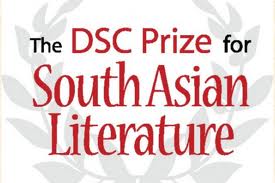One of my stories had been selected for BareLit anthology, but that’s not the reason I packed a jam sandwich and caught a morning train to attend its festival last April. Only a month before, the government had announced that it was initiating an official EU withdrawal process. Like so many people I was feeling anxious about the overt racism and fearmongering of the Brexit referendum campaign. I was also feeling battered by social media hate speech and the dark and twisted political narratives I’d seen in many newspapers. What compelled me to head to the BareLit festival was a deep and intuitive desire to hear from writers and intellectuals of colour.
Founded by artists of colour to promote writers of colour, this new festival was launched as a direct response to the 2015 Writing the Future report from Spread the Word which stated that three of Britain’s largest literature festivals featured only 4% of writers of colour. BareLit is as much a form of literary activism as it is a means of community self-care. It says to writers of colour: ‘Your voice is important. We put you centre stage. We back you. We’re listening.’ It’s as important a message to aspiring artists as it is to those who are masters of their craft.
I recall Kerry Young’s helpful and incisive Royal Literary Fund speech on issues of ethics and morality in fiction. I remember Inu Ellams’ incredible poetry recital from his collection, After Hours. I was fascinated by a talk on trauma in literature (which took a deep look at how writing about suffering might impact its authors). Most interesting of all was Ali Bader’s (Iraq 100+) unashamedly intellectual account of how and why he harnesses fiction to speak out about the political realities of Iraq and war itself. The Jhalak Prize panel explained that their prize founded after Writing the Future stated that only 8% of people working in British publishing self-identified as BAME, thereby creating a situation where authors published were also overwhelmingly white. Issues of discrimination and unconscious bias highlight the importance of initiatives like BareLit.
As with all literature festivals, mingling between sessions was a must. Despite the few international authors of colour on their bill, most British literary festivals attract a predominantly white and middle class audience. BareLit’s audience is as diverse as the streets of London, topping even events such as the Jaipur Festival on the Southbank. Whether I was loitering by the bookstalls, or eating my jam sandwich in the café, I saw people from all backgrounds supporting writers of colour: buying books, listening, questioning. This is a festival in its infancy (and its bookshop must get bigger) but BareLit’s mode of literary activism and community self-care, delivered with imagination, warmth, and vibrancy, bodes well for the future.
Divya Ghelani writes short stories, novels, and screenplays. Her work focuses on the lives and experiences of the South Asian diasporia, as well as universal themes of love, home, family, migration, feminism, race, class, and identity. She holds an MA in Creative Writing from UEA and an MPhil in Literary Studies from the University of Hong Kong. She was a 2016 Word Factory Apprentice. Her first manuscript won a Writing East Midlands Mentorship. It was longlisted for the Deborah Rogers Writers’ Award, the SI Leeds Literary Prize, and PRH WriteNowLive. She is now writing book two as well as more short stories. Her BareLit story, ROOTS, has been republished on MIROnline.

